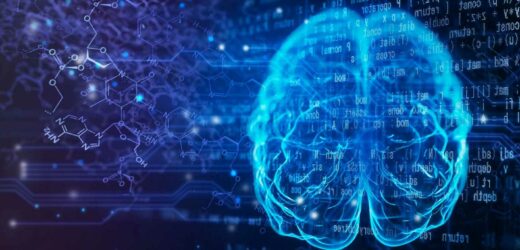MILLIONS of people have now had Covid-19.
While the current strain in circulation is milder than others that came before it, a fresh warning has been issued over the bug.
Medics in Australia found those who have previously contracted the virus are more vulnerable to developing neurological symptoms.
Research headed up by experts at the University of Queensland (UQ) found that Covid activates the same inflammatory response in the brain as Parkinson's disease.
The brain disorder is a condition whereby parts of the organ become progressively damaged over many years.
It is caused by a loss of nerve cells in the part of the brain called the substantia nigra.
Read more on Covid-19
Warning to anyone who’s had Covid over nasty side effect
Covid deaths jump 21% in a week as cases ‘level off and latest wave peaks’
This leads to a reduction in a chemical called dopamine – which is key to regulating the movement of the body.
The experts in Australia explained that when some people get Covid, the inflammasome pathway can spark a 'fire' in the brain.
This, they said, begins a chronic and sustained process of killing off neurons.
Professor Trent Woodruff and Dr Eduardo Albornoz Balmaceda from UQ's School of Biomedical Sciences along with their team, studied the effect of the virus on the brain's immune cells.
Most read in Health
Docs said my symptoms were all in my head – but I was slowly dying
Warning as cases of deadly cancer hit record highs – the 4 signs you must know
I looked like Freddy Krueger after horror illness spread through my body
I’m an expert and here’s the mistake all parents make when it comes to bedtime
They looked specifically at 'microglia' which are the key cells involved in the progression of conditions like Parkinson's.
Writing in Molecular Psychiatry the team explained: "Our team grew human microglia in the laboratory and infected the cells with SARS-CoV-2, the virus that causes Covid-19.
"We found the cells effectively became 'angry', activating the same pathway that Parkinson's and Alzheimer's proteins can activate in disease, the inflammasomes.
"It's kind of a silent killer, because you don't see any outward symptoms for many years.
What are the 8 signs of Parkinson’s you need to know?
According to the NHS, symptoms can include:
- involuntary shaking of particular parts of the body (tremors)
- slow movement
- stiff and inflexible muscles
- depression and anxiety
- balance problems
- loss of sense of smell
- problems sleeping
- memory problems
"It may explain why some people who've had Covid-19 are more vulnerable to developing neurological symptoms similar to Parkinson's disease," the team added.
Hundreds of people die from the Parkinson's every year in the UK, with this risk rising as you get older.
The most recent data from the Office for National Statistics (ONS) shows that in 2020, 2,968 people over the age of 85 died from the condition across England and Wales.
These figures refer to the number of deaths where Parkinson's was recorded on the death certificate either as a contributory factor or as the underlying cause of death.
Medics said that the spike protein of the virus had been enough to start the process.
Prof Woodruff said that if someone is already pre-disposed to Parkinson's then catching Covid would be like 'pouring more fuel on the fire'.
They explained that the same risk would apply for Alzheimer's and dementia.
In order to stop the Covid having an impact, the experts used inhibitory drugs which are currently in clinical trials with Parkinson's patients.
They said that this successfully blocked the inflammatory pathway activated by Covid-19 – essentially putting out the fire.
Read More on The Sun
Disney’s heartwarming Christmas ad highlights importance of being together
I go from a 5 to a 10 when I wear a bikini but not everyone agrees with me
While the researchers said the link was concerning, they said that possible treatments were likely already in existence.
"Further research is needed, but this is potentially a new approach to treating a virus that could otherwise have untold long-term health ramifications," Prof Woodruff said.
Source: Read Full Article











